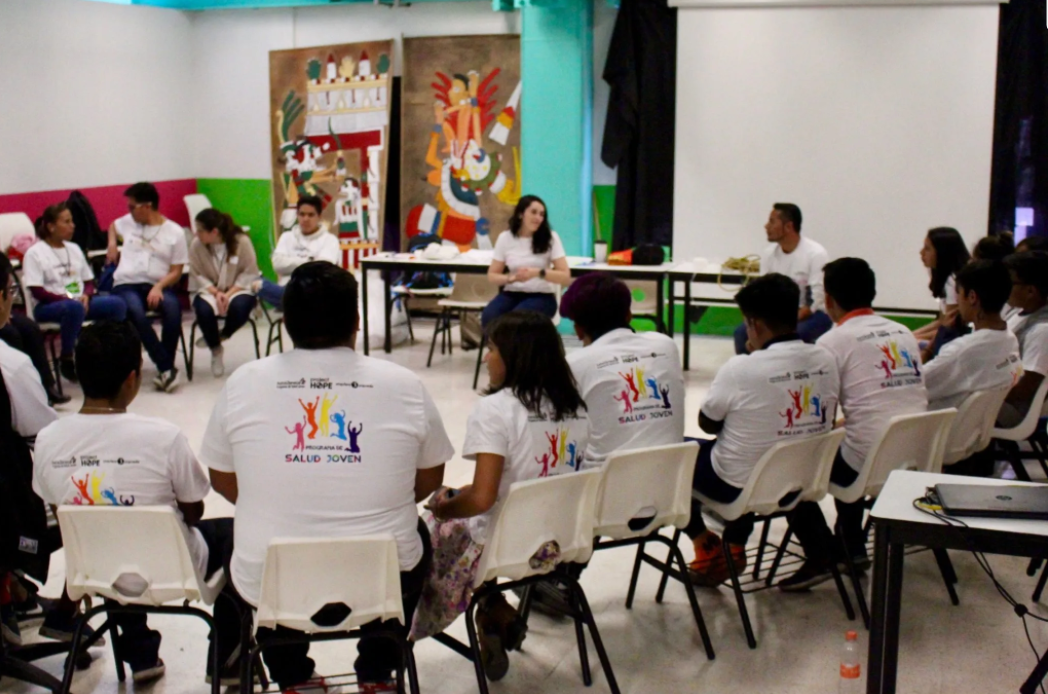Yarishdy Mora Is Empowering Youth Through Diabetes Education In Mexico
Editor’s Note: Latinx Heritage Month, a month recognizing the contributions and influence of Hispanic Americans in the United States, takes place every year from September 15 to October 15. The 15th day is significant because it signifies the anniversary of independence for several Latin American countries, including Guatemala, Honduras, Nicaragua, Costa Rica, and El Salvador. In honor of Latinx Heritage Month, Beyond Type 1 interviewed Latinx leaders working to advance diabetes management and health access not only in the U.S., but globally.
Yarishdy Mora is the country director of Project HOPE Mexico and director of the Youth Health Program at Project HOPE, a global health and humanitarian organization working to address public health issues. In her role, she supports young people to take control of their health, particularly chronic and noncommunicable diseases, including diabetes.
As a director, she creates platforms with federal and local organizations, including the Ministry of Health and PAHO México, and serves as a link between their implementing partners to advance the health of youth in Mexico.
“My work is to create platforms with these agencies so the youth that we work with can have an opportunity to participate, and use their voices to advocate for community building and improvements in public health,” Mora tells Beyond Type 1.
One of the programs that Mora oversees is the Youth Health Program. Mora says that the program engages youth through modules, which cover a myriad of topics, such as diabetes, nutrition, tobacco, alcohol and physical activity. In this program, youth in Mexico are able to learn about the best practices around staying healthy. “It’s empowering the youth to get to know their body, and provide them with the information to prevent [type 2] diabetes,” Mora says.

This program is part of Project HOPE and Mora’s efforts to prevent the development of type 2 diabetes starting at an early age. According to the International Diabetes Federation, Mexico had the sixth highest prevalence of diabetes in the world in 2015 with an estimated 11.4 million people in Mexico living with any form of the chronic illness. It is estimated that by 2040, that number will increase to 17.5 million.
The program also teaches the program participants life skills, such as emotion and feeling management, tension and stress management, assertive communication, empathy and decision making, says Mora. “By empowering the messenger [the youth], we have more possibilities for them to communicate to their peers about solid, structured health prevention and best practices for a healthier life,” Mora says.
However, getting the youth to adhere to the recommendations of the program hasn’t come without its own set of challenges. Mora shares that the environment has made diabetes management harder. “The access to junk food is better than healthy nourishing food,” Mora says.
Mora adds that private companies, specifically cereal brands, target youth to purchase their products by including small gifts. And while there is a law that prohibits TV marketing from 9 a.m. to 7 p.m., Mora says this is not effective at protecting children from the private sector’s marketing aims. “Children watch TV in all other hours, not just that range,” Mora says.
In addition to the marketing aims, violence is another issue that prevents people from exercise. According to a USAID report, assaults, muggings, robbery and public disturbances have fueled insecurity among Mexican citizens. “There is violence in the streets and also, not every space has lights. So people don’t go to the park because it’s not safe,” Mora explains.
Ultimately, Mora’s fervent hope is that the Youth Health Program will have a domino effect on the rest of the youth’s community to change what it means to live with diabetes. “We built the program to, yes, empower youth, but also these youth will empower their peers, family, friends, community and hospitals,” Mora says. “Young people are very important. We need to start paying more attention. I think it is very important they have the same opportunities. They are going to be the future.”





